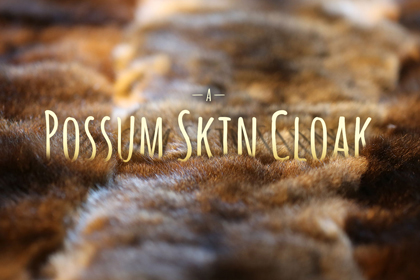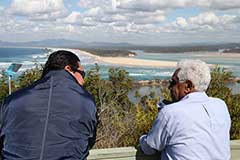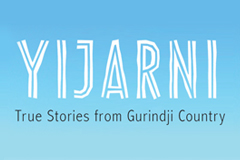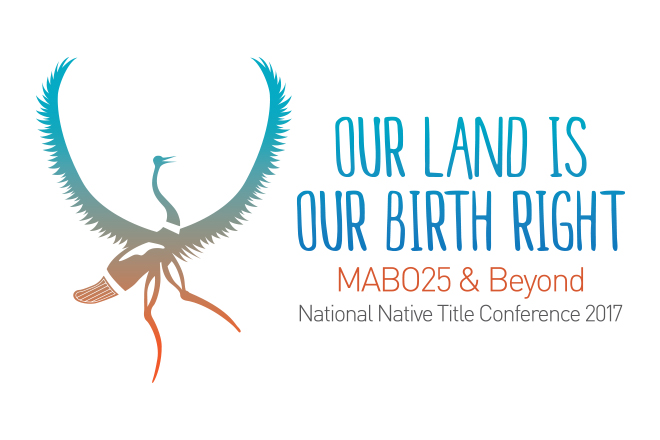John Ah Kit
Jawoyn Elder, land rights campaigner, former NLC Director and the first Indigenous Minister in an NT Government
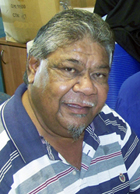
Righting a Wrong
I first read the Koori Mail 20 years ago. It started off as a very small and humble newspaper and I guess a lot of people didn’t expect it to be successful. Today, it is a huge success and has answered those critics.
The Koori Mail gives Indigenous people around the country an opportunity to associate with an Indigenous paper. It’s a good read and people are proud of it and look forward to getting their copy every fortnight.
I believe that many non-Aboriginal people read it too and find it interesting, not only for the political and sporting stories but also the human interest stories. The Koori Mail is a credit to the board and the people who have come up with the content and collated it over the years.
So I’m patting you mob on the back.
Around the time the Koori Mail started in mid 1991, I was the Executive Director of the Jawoyn Aboriginal Association Inc at Katherine. But for the seven previous years, I had been director of the Northern Land Council (NLC).
In 1987, the Aboriginal Land Rights (Northern Territory) Act 1976 was amended in a couple of ways. A sunset clause was introduced, which meant no further claims could be lodged under the Act after 1997. And Aboriginal people in the NT lost the right to veto mining on their country if they’d previously said yes to exploration. This slowed things down a little bit but back in those days you had miners warehousing their mineral leases until they were more viable and they could activate them as quickly as they liked.
At the land council, I was heavily involved in co-ordinating staff in their preparation of land claims to go before land commissioners before the sunset clause kicked in. And I was responsible for ensuring that we had the resources to win as many of those land claims as we could.
The legislation gave Aboriginal people in the Territory an opportunity to express their feelings and sense of ownership of country, and express their common spiritual responsibilities and their primary spiritual affiliations. These were the main things you had to prove to the land commissioners.
And in many cases, claims were successful. By 1997, as much as could be done under the legislation to get people their land back had been done. Land was coming back to traditional owners and the land councils had begun to concentrate more on land management responsibilities.
Successful land claims gave people, in a white man’s way, paperwork that acknowledged them as the real owners of their country. It recognised their culture, attachment and spiritual connection to the land. A lot of our people were relieved, and rightly so. It was about the government of the day righting a wrong. As a consequence of people getting their land, the opportunities for them have grown.
Because the Act has been around for quite some time, many people in the Territory, both black and white, have come to understand it and live with it. They realise that it’s not going to go away and developers, entrepreneurs and anyone else who wants to put up proposals understand that there’s no use trying to circumvent the ALRA. And that’s good for the legislation and the NT traditional owners.
There are a lot of good ventures happening now, with employment and training opportunities. This kind of activity on Aboriginal land is good for Territory tourism, good for mining and good for traditional owners to derive additional benefits such as employment, training and royalties, and good for country.
Today, the main challenge for Aboriginal people in the NT is to utilise their land in a manner that they can benefit from it, and also to protect their cultural and sacred sites and stories. Essentially, to use the land in a way that provides additional benefits that can support a better way of life. This common denominator should be extended to all Indigenous people of Australia.
Pastor Ossie Cruse
Yuin and Monaro Elder, land rights campaigner (NSW), and former NSWALC chairman
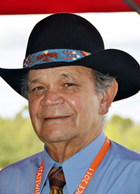
The Key to Our Future
I remember reading my first Koori Mail many years ago. I thought it was one of the most exciting things to happen to Aboriginal people for a long time. Editorial reflecting the issues of the day, from our point of view? It was incredible, really. In other newspapers, we were hidden. You’d see everything about mainstream society and, if you were lucky, a smattering of Aboriginal issues. But, in the Koori Mail, our stories are told as they are, they’re not fabricated, and that’s really good.
I know that every time copies of the newspaper hit the newsagents, they go, they don’t stay there. Even whitefellas buy it. The Koori Mail has made a profound impression on our community.
I’m a Christian and at a very early stage, I learned that the creator, we call him Mirriarl, was prominent in our communities. Everywhere you go, he’s there. I learned to regard the land as �?my mother’. I always saw land as getting our families back together, giving a future to our children and giving us pride and dignity. I still hear old people saying �?which country do you belong to? Not �?this is private property, keep out, I own this bit of land, it’s mine’. That’s not a true concept Aboriginal people think about. Country owns you, and that’s what I grew up with.
The situation facing our people in NSW back in 1991 and today hangs off the fact that we lost more than we gained when the NSW Aboriginal Land Rights Act 1983 was passed.
We lost our hunting and gathering rights and our rights to minerals below the earth. And they handed us all of these dilapidated facilities, not just the houses, there were no sewerage or treatment plants. That’s what they gave over to us to handle and to manage. It really was a masterstroke on the part of the government. We took over the houses because we were happy to be getting the land with them, but the new Act was a sell out because the preamble said we didn’t have land and they gave us compensation that was never inadequate for the total population of Aboriginal people in New South Wales. They needed to compensate the fact that they stole all our land in the first place and give us total responsibility for our communities.
I’m not saying that we haven’t gotten anything out of the Act. It did deliver NSWALC’s capital investment fund and there are people who’ve been helped by the housing. But the compensation paid to us was never �?fair and just’. Instead of the sunset clause in 1998, there needed to be at least one per cent of national GDP forever, in perpetuity. That would have given us permanent access to the taxation system and continued to grow our own capital investment instead of making us reliant on the rise and fall of the markets like we are now.
Whereas they gave us houses, they never gave us what was required to manage or service them. After being involved in national and international affairs for years, I became the Chairperson of NSWALC in 1996. Back then, the organisation was very fragmented. There were problems because for the first time in history we were managing this mammoth task that we weren’t entirely prepared for. And it is fair to say that some people hadn’t done the right thing by the organisation. At the same time, other people were working really hard to make things work.
This has been our land since time memorial but many people are benefiting from it in the private sector to the extent of being multi-millionaires while the people who own it are still living in poverty.
The Koori movement always maintained governments need to apologise for the illegal taking of our homeland and to make things right. I think that’s now more urgent than ever. I think there’s an invisible stress that is imposed on the whole nation; the stress of European people knowing in their hearts and minds that they are living on someone else’s land and the stress on our people knowing that we are aliens in our own land.
The Federal Government is spending millions of dollars on closing the gap, but they will never succeed while we’re still treated as living under terra nullius, people who don’t have full citizenship in this country. Its laws are made without our free and informed consent and that is destroying our country every day. I have always been dedicated to glorifying the Lord Jesus Christ to work for the betterment of our people and to leave a better legacy for our children’s children. That has always been my life.

